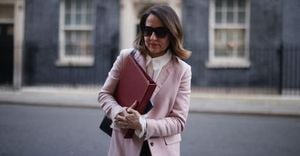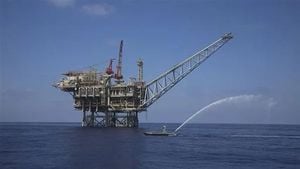On June 25, 2025, the Seoul Central District Court dismissed the arrest warrant petition for former President Yoon Seok-yeol, which had been filed by the Independent Counsel investigating charges related to the 'December 3 Emergency Martial Law' and alleged rebellion. This decision marks a significant moment in the ongoing legal proceedings against the ex-president, who faces serious accusations including obstruction of special public duties and abuse of power.
The Independent Counsel, led by Special Prosecutor Jo Eun-seok, had requested the arrest warrant following Yoon's failure to respond to three police summonses. The charges against Yoon include instructing the Presidential Security Service to resist his arrest and ordering the deletion of information connected to former Special Warfare Commander Gwak Jong-geun's non-civilian phone — actions seen as attempts to obstruct justice.
Despite these allegations, the court ruled against issuing the arrest warrant, citing that Yoon had indicated his willingness to comply with the Independent Counsel's summons. According to the Independent Counsel's statement on the evening of June 25, "The court rejected the arrest warrant for former President Yoon Seok-yeol, requested on June 24, 2025, because the suspect indicated willingness to respond to the Independent Counsel's request for appearance." This suggests the court favored the prospect of Yoon cooperating voluntarily over detaining him forcibly at this stage.
The Independent Counsel has formally notified Yoon and his legal team to appear at the Seoul Central District Court on June 28, 2025, at 9 a.m. They have made it clear that if Yoon does not comply with this summons, they will reconsider requesting an arrest warrant. This development keeps the pressure on the former president to participate in the investigation actively.
Yoon Seok-yeol, who served as South Korea's president, has been embroiled in a highly sensitive and politically charged case linked to the so-called 'December 3 Emergency Martial Law' incident. The case involves allegations of rebellion and abuse of authority during that period, which has drawn intense public and political scrutiny.
On May 16, 2025, Yoon attended the seventh public trial session at the Seoul Central District Court, which focused on charges including leading a rebellion and obstructing the exercise of official duties. His presence at that hearing was one of the few times he appeared publicly in the courtroom during this ongoing investigation.
The refusal of the court to authorize the arrest warrant despite the serious nature of the accusations underscores the complex legal and political environment surrounding the case. It reflects the judiciary's cautious approach, balancing the rights of the accused with the demands of a thorough investigation into alleged high-level misconduct.
Observers note that Yoon's indication of willingness to respond to summonses may be a strategic move to avoid detention while maintaining engagement with the legal process. However, the Independent Counsel's warning about potentially reapplying for an arrest warrant if Yoon fails to appear on June 28 keeps the situation fluid and tense.
The charges against Yoon have profound implications for South Korea's political landscape. The involvement of the Presidential Security Service and the deletion of critical information suggest attempts to interfere with the investigation, which could deepen public concerns about accountability and transparency at the highest levels of government.
As the legal proceedings continue, all eyes will be on the upcoming court date. The outcome may set a precedent for how former national leaders are held accountable in South Korea, especially in cases involving alleged abuses of power and national security issues.
For now, the court's decision to reject the arrest warrant provides a temporary reprieve for Yoon Seok-yeol, but the looming summons and the possibility of renewed arrest efforts keep the pressure firmly in place. The next few days will be critical in determining whether Yoon will cooperate fully with the investigation or face more severe legal consequences.
![[속보] 법원, 윤석열 체포영장 기각…특검](https://thumbor.evrimagaci.org/hZcb6oyyMXs5WgJWu2O5Ko0V7zA=/200x0/tpg%2Fsources%2Fe7c60c9c-f4bb-423a-842b-b582e2a3088e.jpeg)



